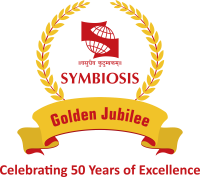Projects
Projects
The faculty at SCCCS are currently engaged in the following projects:
Decarbonising Pune Metropolitan Region 2030

This is a project undertaken by Pune International Centre (PIC), and SCCCS is the knowledge partner in it.
In 2019 the team presented a policy paper titled ‘Making Pune Carbon Neutral by 2030’ to Shri Aditya Thackeray, State Minister for Environment. This led to the current project to explore alternative technologies, find areas of improvement and to prepare pilot projects which will lead Pune Metropolitan Region (PMR) on to a decarbonising pathway.
In the first phase, the team prepared a rapid assessment of status report of carbon emissions in PMR and an evaluation of low carbon technologies for managing energy demand, waste and infrastructure in cities.
In the second phase (ongoing), we identify the priority areas and ways to reduce emissions in each. We propose technologies and business models to reduce the carbon footprint of PMR.
This project is about climate action. It is about collaboration of various agencies and stakeholders to rapidly reduce the carbon footprint of the city. We propose pilot projects with technologies at different stages of commercialisation, seek out funding opportunities from national and international climate funds, and work with the owner agencies to implement them. This project intends to reduce the carbon footprint through such pilot projects, and persuade the appropriate government agencies to invest in the decarbonising pathway.
Nadi ki Pathshala
This is a joint effort between Jalbiradai and Vanarai, where SCCCS is a knowledge partner. This program intends to empower youth in ecological river rejuvenation. The three-month program imparts ecological knowledge in an experiential manner, to a selected group of students. River ecology, ground water and springs, pollution and current state of rivers, bio-remediation, planning for river rejuvenation, community participation and other topics are covered in this program.
Projects in pipe-line
Proposing a sustainable economic model for natural resources, for the tribal communities of Gadchiroli district
The tribal communities have been using non-timber produce sustainably for centuries. However, in the present situation, the supply chain of these resources has been favourable for middle-men and traders, while the communities receive menial compensation for their labour. This has triggered cutting down of forest resources to make way for plantations. The sustainability of these forests is thus under threat and there is an urgent need to study the current supply chain and propose a model which gives the gathering communities their worth.
Creating young ecologists for managing urban biodiversity
The Symbiosis International University has over Students. Many of them are from rural areas, however, urban youth outnumber them. There is an urgent need to impart an ecological understanding in these students. We propose to do this by way of experiential learning and action research. We are planning programs of Hill biodiversity conservation, river rejuvenation and tree census, within Pune Metropolitan Region, where students will work on year-long projects and improve their relations with the natural environment.
Decarbonising Pune Metropolitan Region 2030

This is a project undertaken by Pune International Centre (PIC), and SCCCS is the knowledge partner in it.
In 2019 the team presented a policy paper titled ‘Making Pune Carbon Neutral by 2030’ to Shri Aditya Thackeray, State Minister for Environment. This led to the current project to explore alternative technologies, find areas of improvement and to prepare pilot projects which will lead Pune Metropolitan Region (PMR) on to a decarbonising pathway.
In the first phase, the team prepared a rapid assessment of status report of carbon emissions in PMR and an evaluation of low carbon technologies for managing energy demand, waste and infrastructure in cities.
In the second phase (ongoing), we identify the priority areas and ways to reduce emissions in each. We propose technologies and business models to reduce the carbon footprint of PMR.
This project is about climate action. It is about collaboration of various agencies and stakeholders to rapidly reduce the carbon footprint of the city. We propose pilot projects with technologies at different stages of commercialisation, seek out funding opportunities from national and international climate funds, and work with the owner agencies to implement them. This project intends to reduce the carbon footprint through such pilot projects, and persuade the appropriate government agencies to invest in the decarbonising pathway.
Nadi ki Pathshala
This is a joint effort between Jalbiradai and Vanarai, where SCCCS is a knowledge partner. This program intends to empower youth in ecological river rejuvenation. The three-month program imparts ecological knowledge in an experiential manner, to a selected group of students. River ecology, ground water and springs, pollution and current state of rivers, bio-remediation, planning for river rejuvenation, community participation and other topics are covered in this program.
Projects in pipe-line
Proposing a sustainable economic model for natural resources, for the tribal communities of Gadchiroli district
The tribal communities have been using non-timber produce sustainably for centuries. However, in the present situation, the supply chain of these resources has been favourable for middle-men and traders, while the communities receive menial compensation for their labour. This has triggered cutting down of forest resources to make way for plantations. The sustainability of these forests is thus under threat and there is an urgent need to study the current supply chain and propose a model which gives the gathering communities their worth.
Creating young ecologists for managing urban biodiversity
The Symbiosis International University has over Students. Many of them are from rural areas, however, urban youth outnumber them. There is an urgent need to impart an ecological understanding in these students. We propose to do this by way of experiential learning and action research. We are planning programs of Hill biodiversity conservation, river rejuvenation and tree census, within Pune Metropolitan Region, where students will work on year-long projects and improve their relations with the natural environment.


